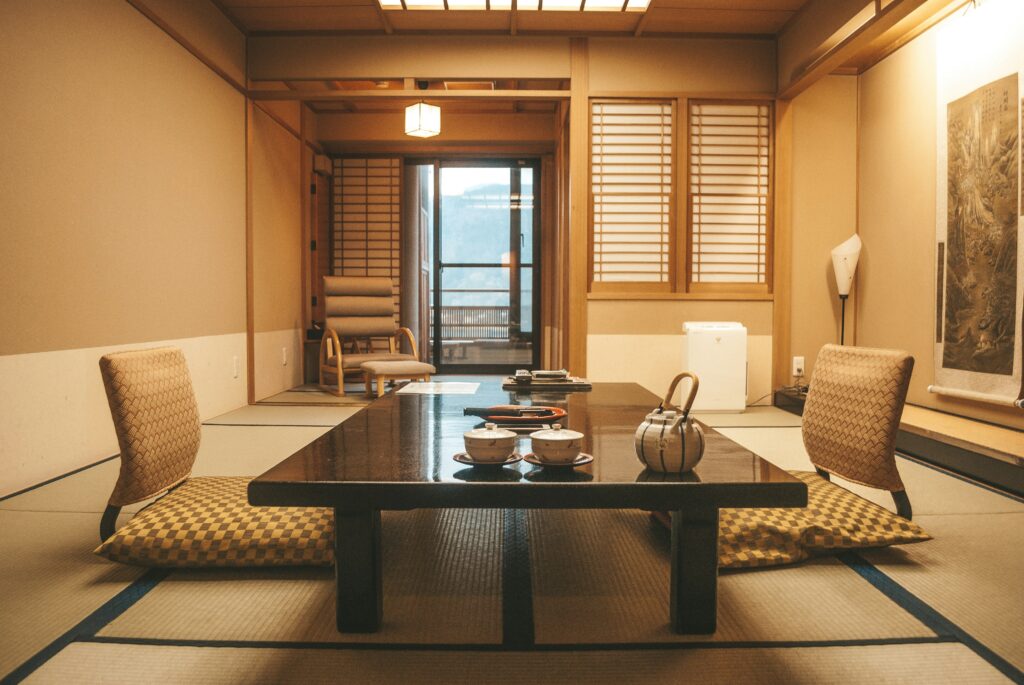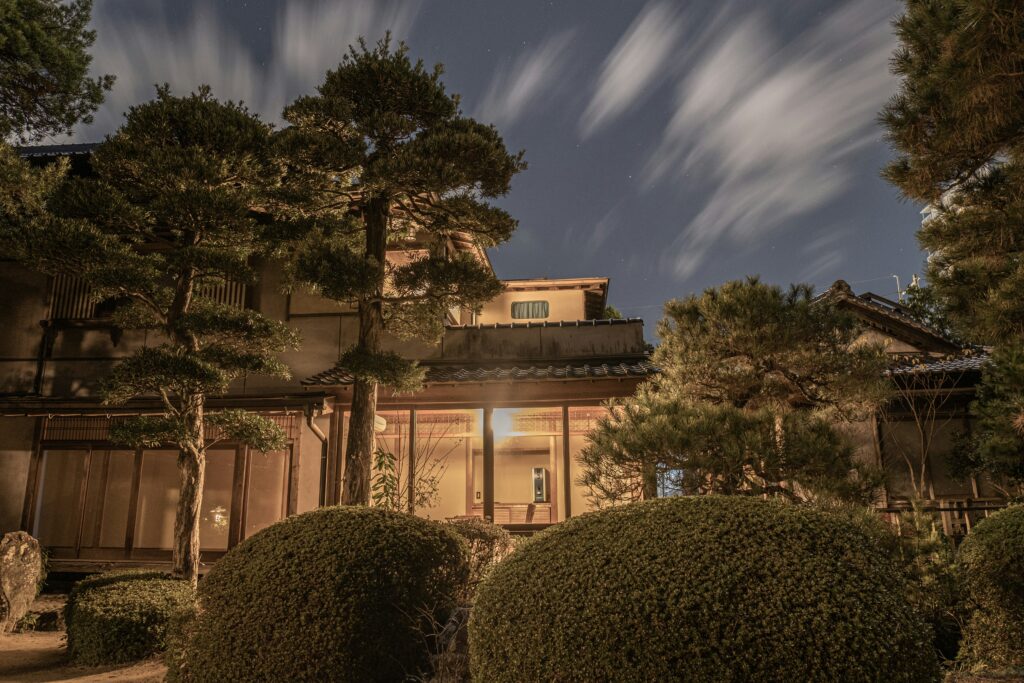If you’re visiting a hot spring (onsen) resort in Japan, I highly recommend you make it an overnight trip so you have plenty of time to explore the town and enjoy the numerous benefits of onsen. Believe me, you’ll leave feeling like an entirely new person!

When booking accommodations, you will generally have two options: a ryokan (traditional Japanese inn) or a hotel. A ryokan is typically smaller than a hotel, so it can feel more intimate and personalized. Kaiseki ryori (a traditional Japanese multi-course dinner) can also be included in the price for one night (it is a must-have experience at least once during your Japan trip).
On the other hand, hotels are mostly western-style with a bed (instead of a futon–floor mattress) and usually more affordable than ryokan. Both are fantastic options depending on your needs, but whichever you choose, below are some simple guidelines and tips you should know.
- Take your shoes off at the entrance to your room, just as you would when entering a home
- Typically for ryokan (especially if a meal is included), you will most likely be charged a fee per person (not per room)
- It is common for ryokan (sometimes hotels) to provide guests with a set of yukata (Japanese-style casual garment) to be worn within the facility. Unless otherwise specified, you are not allowed to wear the yukata outside or take it home with you
- Amenities such as soap, shampoo, conditioner and toothbrushes are usually provided. If you’re staying in an onsen resort, they may be located in the communal bathing area, instead of in your room
- Be considerate of your neighbors and keep noise to a minimum. People visit onsen to relax and unwind
- If you have any tattoos, definitely check in with the accommodation staff before making reservations. Smaller tattoos that can be easily covered with a bandage or cloth are typically okay, but many facilities still have very strict policies (it’s always best to communicate that you have tattoos, in advance). If you have larger tattoos that can’t be covered, try looking for accommodations that have private onsen. Oftentimes, facilities cannot let you use the communal onsen (in consideration of other guests), but will accept your use of private ones that you can book only for yourself
- Ryokan or hotel staff are typically very happy to help you plan activities in the area, so don’t be afraid to ask. You never know where their local know-how may lead you!

